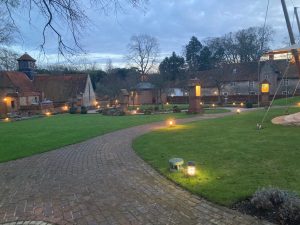
Self knowledge is one aspect of human transformation. Integration is the significant next step beyond self knowledge (i.e., integrating insights of self knowledge into the psyche). The psychology of compassion is hugely important with safely facing our shadow material, including our rigid defence mechanisms which often become intertwined with our biases and prejudices.
The activation of our fight and fight system (which is in located in our primitive, reptilian brain) causes a flood of stress hormones such as cortisol into our system. Cortisol helps to narrow our cognitive capacities in relation to our prejudices, fears and defences. These defences often come into being to protect ego fragility and so changing them is a process beyond just knowing them.
We can get stuck in defensive loops which cause suffering. Usually the creation of such responses are not our fault. Changing these loops often needs gentle work. Helping ourselves or others with understanding our prejudices is potentially confrontational for people attached to their beliefs.
The work of clinical psychologist, Paul Gilbert is helpful here. He developed a psychological approach to human transformation which is gentle but deep in developing the our ability to recognise suffering in ourselves and in others and to respond to this suffering.
Compassion can be a good basis for growth in awareness and healing.
There are three flows of compassion which can help us to loosen our reactive, polarised mindsets and integrate new perspectives. There is:
(1) compassion from self to others
(2) from others to self and
(3) from self to self.
These three pro social and soothing qualities are linked to our mammalian evolutionary capacities for warmth, caring, nurturing and relating.
Dr Paul Gilbert (Compassion Focused Therapy), Dr Gabor Mate (expert in attachment based healing for adults carrying childhood wounds) and the work of Karen Armstrong’s work with ‘the Charter for Compassion’ are excellent sources for considering the role and potential of compassion in transforming ourselves and our perception of the world 